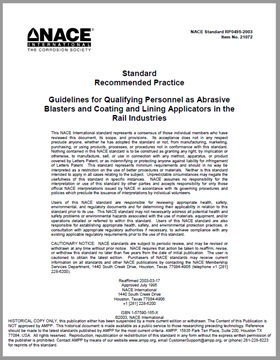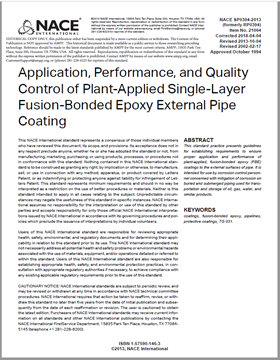Search
TM0286-1988, Cooling Water Test Units Incorporating Heat Transfer Surfaces
Also Purchased
NACE RP0495-2003, Guidelines for Qualifying Personnel as Abrasive Blasters and Coating and Lining Applicators in the Rail Industries
Product Number:
21072-SG
Publication Date:
2003
$179.00
SP0394-2013 (formerly RP0394), "Application, Performance, and Quality Control of Plant-Applied Single Layer Fusion-Bonded Epoxy External Pipe Coating”
Product Number:
21064-SG
Publication Date:
2013
$179.00
SP0196-2015 (formerly RP0196), “Galvanic Anode Cathodic Protection of Internal Submerged Surfaces of Steel Water Storage Tanks”
Product Number:
21077-SG
ISBN:
1-57590-189-7
Publication Date:
2015
$179.00




